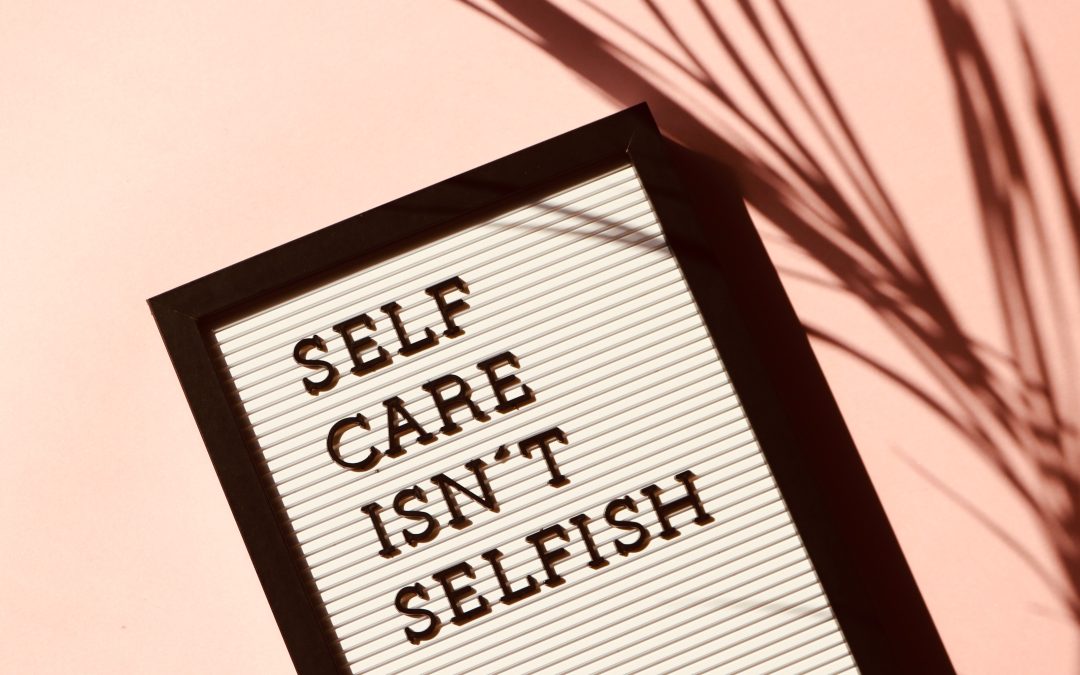by Support @ Brighter Fostering | May 22, 2024 | Fostering
Join us to celebrate the incredible journey of making a difference in a foster child’s life.
Every small act of kindness, every moment of understanding and every bit of support can make a massive impact on a child in foster care.
Building Trust and Security:
Foster children often come from difficult backgrounds, and providing a safe, naturing environment is key.
By offering stability, care and consistency, foster carers can help build trust and security in a child’s life.
Encouraging Growth and Development:
Supporting you foster child’s growth and development is essential. From helping with homework to encouraging hobbies and interests.
Foster parents play a vital role in nurturing a child’s potential talents.
Creating Positive Memories
Simple gestures like family outings, celebrating milestones or creating traditions can help foster children build positive memories.
These moments of joy and connection can leave a lasting impact on a child’s life.
Being a support system
Foster children may face unique challenges and having a strong support system is crucial.
Foster parents, social workers and the fostering agency all work together to provide the necessary support and resourced for the foster child’s wellbeing.
Overall, making a difference to a foster child is rewarding and impactful experience. Every effort, no matter how small, contributes to shaping a brighter future for a child.
Together we can create a nurturing and supportive environment where foster children thrive and reach their full potential.

by Lailaa Ali | May 3, 2024 | Fostering
Building strong bonds in your foster family is essential for forming a supportive and loving environment. We believe open communication is what plays a key role in trust and understanding among family members.
Encouraging honest conversations and listening between a foster career and their child can help everyone feel heard and valued. Sharing thoughts, feelings, and experiences can deepen connections and build a strong foundation for your family.
In addition to communication, engaging in meaningful activities together can build and strengthen the bond within your foster family whilst allowing your child to feel as if they can open up. Whether it’s cooking a meal together, going for a walk in the park, or playing games, sharing experiences can create lasting memories and sense of unity. These activities provide opportunities for bonding, laughter, and creating special moments that will bring your family members closer together.
Another important aspect of building strong bonds in your foster family is showing support. Being there for one another during both happy and challenging times provides a sense of belonging and security. Offering a listening ear, provides encouragement, and showing kindness and compassion can go a long way in nurturing strong relationships within your family.
Some ideas that may help break the ice!
• Baking
cupcakes and cookies are great as they don’t take too long to make.
• Watch a film together.
watching and discussing movies with children is an effective and easy method of improving kid-parent relationships.
• Cook dinner together.
Making meals together teaches you how to tag-team a situation and work together towards a common goal.

by admin | Mar 1, 2023 | Fostering
As what feels as though the longest January ever ends, take a look back to see everything that you have achieved over this last month. Schedule yourself an hour at some point this week to sit down by yourself, take yourself to a coffee shop away from the chaos of your home, go for a walk or a swim, or something that you enjoy doing and create a list of your achievements for the month. Whether this is a mental list, a list in your phone or written in a notepad or diary. As humans we strive for better outcomes for ourselves, so it is important to note and celebrate our successes, rather than just focusing on our failures.
Developing self-reflection will help you to become more self-aware around the choices you are making, the experiences you are creating and how you are developing yourself, whether this be in your personal life or as a foster carer. So what that your pile of washing is coming out of the washing basket, your sink has some washing up from breakfast in it still. You are still doing a good job as a foster carer and making a difference to young people’s lives, children long for warmth and love, not a spotless home.
When you feel like times may be getting a bit tough take some time out and think about your successes and choices. Take the time to listen to your body, it is normal for everyone to get burned out, tired, or stressed with their job and as foster carers these feelings are still valid. For me I find it good to write down how I feel when things are getting too much. Try think about these following questions when you are having these feelings.
· How am I feeling right now?
· Why am I feeling like this?
· Is there anything I can do, or anyone I can speak to about how I am feeling?
· How much has my life changed since fostering?
· What have I done to make myself proud this month?
· How have I taken time to myself this month?
· What do I enjoy about being a foster carer?
· How can I develop in my role? Can anyone give me guidance on how to achieve this?
· What have I found challenging over the past month?
· What would I like to do differently next month? And how will I be able to do this?
You can choose to share these answers with another person or keep them to yourself but remember to keep note of these to look back on in the future. Remember fostering, like your normal life will have many ups and downs and many challenges. The decision you have made to become a foster carer will have a massive impact on the lives of young people, even if this difference is only small the changes it can make to a young person’s life can be significant. What could be more special than that?

by admin | Dec 30, 2022 | Fostering
In this blog we are focusing on children who are exhibiting challenging behaviours whilst in foster care and ways in which their foster carers can support them.
There is a misconception that children who are ‘behaving badly’ are ‘naughty children’. This can be correct, but usually there is reason behind the behaviours.
Every child who enters the care system will be there for different reasons. Some may need some short-term care whilst a parent/carer is managing an illness, others may have experienced extreme abuse and neglect throughout their childhood.
Due to this some children may be perceived as challenging and exhibit “bad behaviours”. However, there are steps as a foster carer you can take to try and prevent this and help the foster child settle into your home.
What can I do as a foster carer?
1. Set some clear house rules
When a foster child is coming into a new environment, they will not know all the rules of the house. Your job as a foster carer is to sit down with the foster child/children and explain the house rules to them. You need to ensure that the whole family is abiding to these rules and not just the foster children. If the foster children receive different rules from the others in the household, they may start to feel vulnerable which could in turn cause upset and anger towards the foster carers.
This will usually be done with your supervising social worker in a Safer Caring Agreement meeting. The meeting will include the foster carer/s the foster child/ren and your supervising social worker, it may also include the child’s social worker from the local authority.
Adults within the household who are implementing the rules need to ensure that they are on the same page when instilling the rules to the children. The approach needs to be consistent if not the foster child may notice the inconsistency in authority within the household and attempt to challenge this.
2. Outline expectations
When trying to manage behaviour it is vital that you as the foster carer outline all the expectations of the foster child. For example, this could be something such as keeping their bedrooms tidy or helping unload the dishwasher three times a week. By giving specific expectations to the foster child, it can instil a sense of responsibility and purpose.
3. Lead by example
Behave as you want children to behave, it is incredibly important that you behave positively to ensure that this is reinforced. For example, we all have times of disagreement, however these disagreements should be settled in a calm manner, through discussion rather than resorting to volatile language and shouting.
4. Praise!!
Praise is so important to any child. Praise will help to build confidence and self-esteem. It is not uncommon that children within the care system have low self-confidence and self-esteem, yet with giving praise where praise is deserved these attributions will improve. With better self confidence and self-esteem, it will allow the foster child to express themselves positively.
Managing behaviour of young people and children is not just an art, there is a considerable amount of thought, training and experience that will support the work needed to be done.
This is by no means a complete guide but more of a small insight to working with children with challenging behaviour, we hope you found this useful as there are an immense amount of resources one can explore.
Brighter Fostering

by admin | Dec 27, 2022 | Fostering
In accordance with fostering Service Regulations, Brighter Fostering maintains a central list of panel members who are selected to reflect the community that the panel serves, who may be professionals and service user between them who have a vast range of experience. The panel may include a Brighter Fostering social worker or senior member with Panel experience but predominantly will consist of independent adults with experience and knowledge of fostering and those who work in children’s social care, or health and education.
The convene a Fostering Panel Meeting the following people must come together:
A Panel Chairperson
They are not an employee of Brighter Fostering, but an Independent person with the necessary skills knowledge and expertise to chair the panel.
A Vice Chair
This person is responsible for chairing meetings in the chair’s absence or when the position of chair is vacant.
One Social Worker
They will have at least 3 years relevant post-qualification experience in childcare with direct experience of fostering or in placing/supervising children in foster care.
At least three other Members
Panel membership must include at least 3 other members not including the independent Chairperson. Where possible Brighter Fostering will request at least one foster/adoptive parent from another service and when, if possible, a former looked after young person who now meets the necessary conditions to join the panel.
The Panel Adviser
At Brighter Fostering, this role is fulfilled by our Service Development Manager. We also have an Independent Panel Advisor who in a previous role was a Senior Social Worker and Independent Reviewing Officer. Any one of the Panel Advisers will be present at the panel meeting. The Panel Adviser is there to advise panel members on regulations, agency policy, practice and performance requirements.
The assessing social worker will be there with the applicant to explain the recommendation to the panel and, if the applicant wishes, they can bring a friend or relative for support. That person can come into panel or stay in the waiting area, whilst the panel members deliberate and meet the assessing social worker and the applicants.
Before the panel, the chair will come and introduce themselves and explain what will happen and how the panel works.
The panel will discuss your application and then ask the assessing social worker any questions, after that the applicant will be requested to come in and join them along with the assessing social worker. The panel will then introduce themselves and ask a few questions, including your answers to the children’s questions.
What will the fostering panel ask the applicants?
Panel members might ask about the assessment, the training and why the applicants are looking forward to becoming future foster carers.
The panel will be likely to also ask the assessing social worker some questions if there are things that they need to clarify after reading the completed assessment report. They are there just to clarify issues and not to interrogate the applicants.
What happens next?
After introductions and asking the necessary questions, the applicants and the assessing social worker will be asked to return to the waiting area while panel considers their recommendation.
Having concluded its discussions and deliberations, the Panel must do one of three things:
1. Recommend for approval as suggested in the assessment report by the assessing social worker, which will include reasons why the panel feels the applicant is suitable to foster, number of placements, age, gender, and type of placement.
2. Defer a recommendation with reasons for their deferral, this may be down to requiring more information about the applicant’s suitability to foster.
3. Recommend Not to Approve, if the panel feels the applicants are not suitable to foster, reasons will be shared with applicants for why the recommendation is being made.
The Panel Chair, with consulting the panel members, will then inform the applicant about their recommendation and that The Brighter Fostering Agency Decision Maker (ADM), will consider that recommendation and make a formal decision as to whether the applicant should be approved as a foster parent.
The Decision is made by the Agency Decision Maker (ADM)
This decision will be made as quickly as possible and will normally be communicated to the applicants as soon as the ADM makes their decision and then in writing within 10 working days of the decision.
Following the panel, applicants will receive a feedback form to let Brighter Fostering know your views on the assessment and the panel experience. This will be helpful and will inform the service what is working well and whether there are any areas we can improve on.
The overall experience of Fostering Applicants
Attending panel may feel a bit daunting and the idea of a room full of people asking applicants questions might feel overwhelming, but the truth is most people having attended a panel meeting it is definitely not intimidating which they had feared and that panel members are friendly and welcoming.
All panel members will be aware that people may be a bit anxious about attending and they will try to help applicants to feel relaxed, at ease and be comfortable, having completed an intense assessment process, this is the final stage of process, so remain positive.

by admin | Jun 28, 2022 | Fostering
Why the fear of “getting too attached” shouldn’t stop you from fostering
I’d love to foster, but….
Our May blog aimed to address some of the common myths and buts that prevent people from applying to be foster carers. Now you may be thinking that fostering could be right for you and your family, but you still have concerns.
Our June blog discusses one of the biggest buts for many people … I’d love to foster, but I couldn’t say goodbye.
Throughout our June blog, we will explore why a fear of getting too attached shouldn’t deter you from fostering and why it may make you the perfect person.
When and why do foster children move on?
In some cases, fostering can turn into a permanent living arrangement.
However, most children leave foster care to return to their birth families, when the birth parents or their family members have received the support needed to enable them to provide a safe and stable home for their child.
Alternatively, some children may move on to another more permanent home, such as an adoptive family or permanent fostering home.
Children may reach the age of 18 when in your care and you may support them to move onto independent or supported living arrangements.
(NSPCC 2021)
How can I cope with saying goodbye?
Saying goodbye to a child who has become a part of your family will be hard and your emotions are valid and understandable. We are human and foster carers will and should form strong bonds with the children in their care.
Being concerned about getting too attached is not a hindrance, it’s an asset. Being able to build a strong attachment with a child will enable you to attune to their needs and help them to thrive when they’re with you and in the future.
People foster for many years and say goodbye to many children. Resilience will come with time and through the knowledge that you and your family made a positive difference to the life of the foster child.
Remember – you are not on your own!
Your support network will no doubt play an important part in your fostering journey. If you are in a couple, lean on each other. Reach out to friends. Talk to fellow foster carers about their experiences.
Your supervising social worker will also make sure that you are supported fully in both a practical and emotional sense, whether that involves training, taking a break or talking through your feelings.
“Do not let the fear of having a child that might leave deter us; instead let the fear of a child never knowing our love drive us” (Johnson 2022)
Let’s keep answering your concerns!
We would love to have the opportunity to support you through your fostering journey.
If you would love to foster but have those niggling questions or concerns, our friendly and approachable team are here to help- you won’t know until you ask!
You can reach us by email: info@brighterfostering.co.uk
Or by phone: 0113 350 9006 or 07368594169






Recent Comments